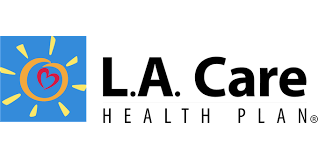Common STDs and How to Prevent Them

Sexually active people are at risk for sexually transmitted diseases (STDs). While lifestyle factors like having sex with new partners frequently can increase your risk of STDs, anyone can get them.
At Care Fast Urgent Care of Burbank, California, we’re here to provide knowledgeable, nonjudgmental support for all of your STD concerns. Our team offers STD testing and treatment and can also advise you on safer sex strategies to reduce your risk of contracting an STD.
With the right testing and treatment, you can protect yourself from sexually transmitted infections and avoid spreading them to partners, as well. Here are some of the most common STDs in circulation and tips to prevent contracting diseases through sexual contact.
Common viral STDs
Viral STDs are viruses that you can transmit sexually. Examples of common viral STDs include hepatitis B, human papillomavirus (HPV) and genital herpes, and human immunodeficiency virus (HIV).
Vaccination can prevent some viral STDs, like hepatitis B and HPV. Barrier methods like condoms and dental dams are also highly effective for preventing the spread of viral STDs.
If you’re concerned about hepatitis B, an injection of antibodies within 12 hours of exposure may be effective for prevention of disease. Hepatitis B can become chronic, requiring ongoing treatment to support your health and reduce transmission risk.
HIV infection can lead to acquired immunodeficiency syndrome (AIDS). The Care Fast Urgent Care team can recommend preventive medications to protect you against HIV. Your risk of HIV exposure is higher if you have multiple sex partners. Barrier methods are effective to prevent HIV infection.
Common bacterial STDs
Bacterial STDs include syphilis, gonorrhea, and chlamydia. These conditions are caused by infectious bacteria that can transmit through sexual contact.
Vaccines aren’t available for these STDs, so barrier methods like condoms are your best bet in order to avoid infection. Antibiotic treatment can address most bacterial STDs if you become infected.
Common parasitic STDs
Trichomoniasis, giardia, and crabs (pubic lice) are examples of common parasitic STDs. These STDs occur when parasites transfer between hosts during sexual contact.
Parasitic STDs are often uncomfortable but not seriously medically dangerous. You can protect yourself from parasitic STDs by using condoms and other barrier methods, and checking with new sexual partners to ensure that you’re both recently tested and clean.
Testing and STD prevention
While strategies like good partner communication, limiting your sexual partners, getting vaccinated, and using barrier methods and protective medications can lessen your risk of STDs, getting tested regularly is also an important part of your sexual health.
If you notice potential STD symptoms like painful or burning urination, genital discomfort or lesions, penis discharge, or unusual vaginal discharge or bleeding, visit Care Fast Urgent Care for an STD test, and get the treatment you need in a safe and compassionate medical environment.
Regular STD testing helps prevent the spread of viral, bacterial, and parasitic infections. It may be a good idea to schedule an STD test even if you’re not symptomatic, especially if you’ve recently connected with a new partner or partners.
Taking care of your sexual health isn’t complicated. Just walk in for prompt and professional STD testing and treatment at Care Fast Urgent Care.


















